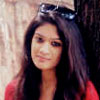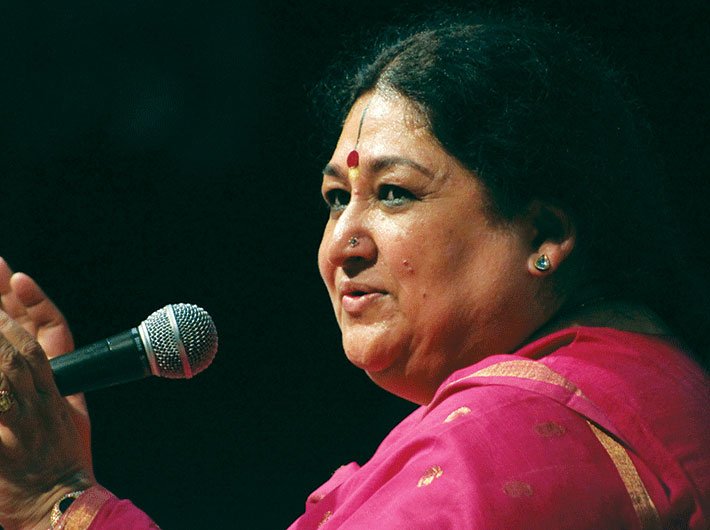“There are many young people who are dedicated to the study of classical music. What they need is the love and support of the audience”
Shubha Mudgal, a popular practitioner of Hindustani classical music, was born and brought up in a family of academicians in Allahabad. Known for hits like ‘Ali More Angana’, ‘Dholna’ and ‘Ab ke Sawan’, she is also recognised as a composer. A former member of the Central Advisory Board of Education (CABE), Shubha chaired a focus group that discussed the need for an arts education programme in mainstream school education. Mudgal has also been actively involved in efforts to strengthen artistes’ rights. She was awarded the Padma Shri in 2000, apart from other awards and recognitions.
Tell us about your tryst with different art forms.
As a child I was encouraged by my parents to explore the magical world of the arts. Not only did I start learning Kathak at the age of four, but as I grew up I also took part in school-level and amateur theatre, elocution, photography and many other art forms. I was encouraged and provided with all possible opportunities to engage with different art forms. Much later, my mother suggested that I take formal taaleem (training) in Hindustani classical music as an inter-disciplinary experience. In the past, Kathak dancers were also trained to sing thumri-dadra, ghazal etc. and perform abhinaya to these vocal compositions. So in a sense, my formal training in vocal music came as a supplement to my training in Kathak. However, very soon I became deeply immersed in studying vocal music and gave up dancing to be able to spend a larger amount of time learning vocal music. The idea of taking it up as a profession came much later and was an independent decision; supported and encouraged by my parents
You also have an interest in literature and theatre. Do you see any association between these art forms and your music?
In India, several theatrical forms like jatra, nautanki, are in fact termed musical theatre. So the association of theatre and music is well established in the Indian context. Song text too is a significant aspect of vocal music, and therefore students of music are advised to take an interest in both literature and theatre.
My parents have taught English literature at the Allahabad University and were keen followers of Hindi and Urdu literature. The great gurus I learnt from - namely, Pandit Ramashreya Jha ‘Ramrang’, Pandit Vinaya Chandra Maudgalya, Pandit Vasant Thakar, Pandit Jitendra Abhisheki, Pandit Kumar Gandharva and Smt. Naina Devi - were all vaggeyakars or composers who also wrote song texts. Therefore, I have inherited a love for literature along with my passion for music both from my parents as well as my gurus.
How can art be promoted through education system?
It would be fantastic if a vibrant arts education programme that gives due importance to the diversity of Indian arts could be created and implemented in mainstream school education in India. A recommendation to this effect was in fact received and accepted by The National Council of Educational Research and Training (NCERT) and Central Advisory Board of Education (CABE) sometime in 2005-2006, but ten years later, arts still remain distanced from our education system. I believe the government could make this a reality if it had the sincere will to do so.
Making a full-time career of music often deters aspiring musicians. How can young talent be encouraged? Can the government help?
There are financial insecurities and uncertainties in the life of a musician over others. And yet, if an artiste feels the urge to make a commitment to music, he/she will do so irrespective of what lies ahead. Therefore, even today, there are many young musicians who take up the challenge of being full-time musicians fully aware of the difficulties that lie ahead. Those that prefer a more predictable and conventional career path adopt other strategies. But I don’t think we can expect the government or the ministry of culture alone to wave a magic wand and make life happy and prosperous for artistes.
The government already has some fairly good schemes to promote young talent in the form of scholarships, fellowships, performance opportunities and production grants. Perhaps what it could do is to review these schemes and ascertain whether or not the grants and schemes match international standards or not.
Do you think the classical music is no more popular among new comers?
There are many young people who are dedicated to the study of classical music. What they need is the love and support of the audience.
What according to you are the challenges before our country?
Poverty, an exploding population, illiteracy, unemployment, corruption, pollution and environmental damage are some of the many challenges India faces even today. But perhaps before it tries to overcome these challenges, it needs to find leadership with moral and political integrity, and reject any and every political party that permits issues of caste, community, religion to affect democratic politics adversely.
Describe India
I am tied to the India with an umbilical cord that never withers, weakens or breaks, come what may.
As told to Yoshika Sangal
(The interview appears in the December 16-31, 2016 issue of Governance Now)

